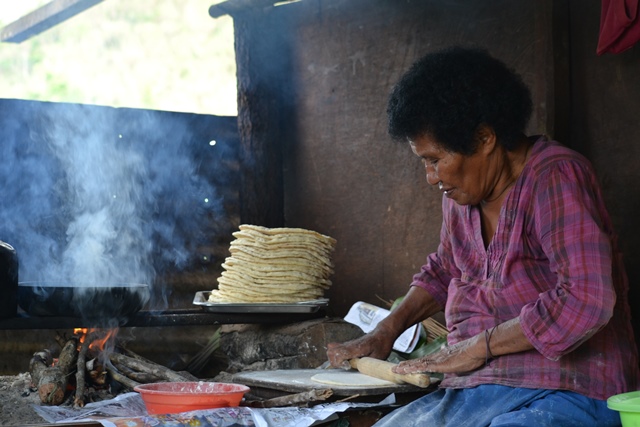Humanity will celebrate yet another milestone this week when the gavel signals consensus and adoption of the Transforming Our World: The 2030 Agenda for Sustainable Development in two days, at the United Nations General Assembly in New York.
A poignant comma in the lifespan of world peace and security through development, it will also be for the gathering of world leaders (193 member states) will be marking the 70th anniversary of the United Nations.
The Sustainable Development Goals offers a platform for humanity to maintain and build on hard-fought achievements of the Millennium Development Goals and reverse certain socio-cultural norms which have acted as barriers to a more holistic and inclusive progress for all.
While many lament the simplicity implicit in the eight (8) Millennium Development Goals and 21 targets, the 17 Sustainable Development Goals with its 169 targets are but a reflection of the complex challenges we are grappling with, regardless of our station in life.
If anything, the MDGs taught us how time-bound plans can make a difference but the interconnectedness of living on one planet has also meant that planetary sustainability and shared prosperity cannot be reduced to simplicity in formula or approaches.
The SDGs cover more ground informed by lessons learnt from the implementation of the MDGs, and now that we know what we are capable of, we are marching into the next 15 years with increased ambition focusing more on the root causes of poverty and the universal need for development that works for all people, covering the three dimensions of sustainable development; economic growth, social inclusion and environment protection.
A product of a three-year inclusive, transparent and participatory process, the SDGs are for all countries, as opposed to the implementation of the MDGs which were mainly for developing countries.
While all goals are crucial for an enabling environment for inclusive progress, Pacific Island nations' advocacy in particular manifests in Goal 13 which recognises that tackling climate change is essential for sustainable development and poverty eradication. Goal 14 complements it with the importance of conservation and the sustainable use of our oceans.
"The new Sustainable Development Agenda is a landmark that will propel all countries towards a world that is more aware of its responsibilities to each other and to the planet, regardless of who we are or where we are located," the United Nations Population Fund (UNFPA) Pacific Sub-Regional Office director and representative Dr Laurent Zessler said.
"UNFPA will continue to work with Pacific governments, development partners and other UN agencies to directly tackle these goals, most importantly on goals 3 on health, 4 on education and 5 on gender equality - we believe that if we get these three right, we would be strengthening the foundation for all goals to thrive and be achievable."
All United Nations agencies and their developing partners, including civil society and the private sector are involved in the implementation of the SDGs but how well it does will rest on all of us as individuals - we cannot afford to continue personal decision-making processes without considering the socioeconomic and cultural realities we exist in.
Five elements underpin the SDGs.
People - we want to end poverty in all its forms and dimensions, ensure all human beings can fulfil their potential in dignity and equality, and in a healthy environment.
Planet - sustainably manage our production and consumption, natural resources and urgently act on climate change while protecting the planet from degradation so it can support the needs of present and future generations.
Prosperity - ensure all human beings can enjoy prosperous and fulfilling lives and that economic, social and technological progress occurs in harmony with nature.
Peace - to foster peaceful, just and inclusive societies, free from fear and violence for there can be no sustainable development without peace and no peace without sustainable development.
Partnership - to mobilise the means required to implement this agenda through a revitalised global partnership for sustainable development, based on a spirit of strengthen global solidarity.
The five Ps or elements of the SDGs reaffirm UNFPA's calls that people should be at the core of development, that when human beings are at the centre of development, it naturally becomes a sustainable approach and includes women and young people - no one should be left behind because everyone counts.
Crucial to the mandate of the UNFPA and its work in implementing the Program of Action of the International Conference on Population and Development (ICPD) are SDGs 3 on health, 4 on education and 5 on gender equality.
Continuing work towards the universal access to reproductive health and family planning will be key to the unfinished business of the MDGs - getting to zero maternal deaths and enabling women to choose the number of children they have. Ensuring access to such life-saving services especially in humanitarian settings where 60 per cent of preventable maternal deaths occur is critical.
Fewer births, fewer deaths and fewer injuries can enable more women to obtain more education, seek better employment, enjoy greater equality and drive greater prosperity for their families, communities and our world.
Better data will enable better results, help us reach the unreached and ensure decision-makers are held accountable for delivering on their commitments.
Enabling women and young people to fulfil their potential is at the very heart of UNFPA's mandate and is vital to transforming the world. How we protect the rights and meet the needs and aspirations of our young people particularly adolescent girls will define the world future.
At the end of the day, it is our everyday decision-making and action that will breathe life to these 17 goals.



